第18章 Chapter (1)
1775.
Marion is returned for the Provincial Congress from St. John's, Berkeley --Made Captain in the Second Regiment -- Fort Johnson taken --Battle of Fort Moultrie.
Engaged in rural and domestic occupations we hear no more of Marion, except as a citizen and farmer, until the beginning of the year 1775.
In the latter capacity he is reputed to have been successful; and between the labors and sports of the field, the more violent humors of youth seem to have been dissipated in exercises which are seldom followed by reproach.
He was very fond of angling and hunting, and with rod or gun, his leisure was employed in a way that would not have displeased the gentle Isaak Walton. These constituted his chief pastimes for the fourteen years that had elapsed since his Cherokee campaigns.
His connection with public events had long since ceased;but, from all accounts, he still continued, in some degree, to fill the eyes of his countrymen. His firmness and purity of character, his gentle temper, known bravery, and the conduct which he had already manifested in war, had secured to him the confidence and the affections of his neighbors. He had attained that place in their esteem which naturally brought him conspicuously before their eyes in the moment of emergency.
Emergencies were now approaching of a kind well calculated to bring into the field all the energies, with all the patriotism of the country.
The great struggle was at hand between the colonies and that mighty empire by which they had been established. Of the part taken by South Carolina in this conflict, history has already sufficiently informed us.
Her movements were made without reserve -- her resolves taken promptly, and steadily maintained with her best blood and treasure.
Her battles were among the boldest and bloodiest, as they were among the first and last of the revolution. Of the political steps by which she committed herself to that event, it does not need that we should enter into details. These belong rather to general history than to biography.
It will be enough to exhibit those particulars only, of her progress, in which the subject of our memoir was more immediately interested.
That he took an early and deep concern in the contest may be inferred from his character. That he should not have become an active politician may also be inferred from his known modesty, and the general reserve of his deportment in society. He was no orator, and no doubt felt quite as awkward in debate as Washington. But his opinions were well known; he was not the person about whose ways of thinking, in trying times, his neighbors could entertain either doubt or discussion.
He formed his opinions as promptly as he fought for them, and his character was above concealment. We find him accordingly, in 1775, returned to the Provincial Congress of South Carolina, as a member from St. John, Berkeley.* This Congress distinguished itself by committing the people of South Carolina to the final destinies of the Revolution. It adopted the American Bill of Rights, as declared by the Continental Congress -- adopted the famous "act of association", recommended by the same federative body to all the colonies, by which the subscribers bound themselves to refuse and to prevent the importation of goods, wares and merchandise, from the mother country;established committees of safety throughout the province, and, in short, in possession of almost dictatorial powers, did not hesitate to use them for the public welfare. It was at particular pains to infuse a martial spirit among the people; and, influenced by this spirit, and under the immediate suggestion, and by direct participation, of this assembly, certain overt acts of treason were committed.
The public armory in Charleston was broken open by night, and eight hundred stand of arms, two hundred cutlasses, besides cartouches, flints, matches and other necessary materials of war, were withdrawn without discovery. One party possessed itself of the public powder at Hobcau; another emptied Cochran's Magazine, while a third, as above stated, relieved the state armory of its contents.
In all these proceedings, the members of the Provincial Congress displayed the energies of men, who, having once set their hands to the plough, have resolved not to be turned away from it. Under that bolder policy which, by provoking the danger, compels the timid to a part in it from which they might otherwise shrink in terror, they were personally engaged in these acts of treason. We may reasonably conclude that, however silent as a member, Francis Marion was not the person to forbear taking active part in the more hazardous duties which distinguished the doings of the body to which he belonged. There was a generous impulse in his character, which hurried him into performance, whenever work was to be done, or daring became necessary. He could approach such duties with a degree of cheerfulness, which to the ordinary mind, thoughtful only of the consequences and responsibilities of action, seemed to partake of levity and recklessness. There was, indeed, an element of playfulness, we had almost said fun, in his character;a quiet and unobtrusive humor, which enlivened his utterance, and softened, with a gentle aspect, a countenance that might otherwise have been esteemed severe. We have no doubt that the native courage, and the elastic spirit of his temperament made him an active participant in all those deeds of decision, which the deliberations of the body to which he belonged, deemed it necessary should be done.
We can very well imagine him conspicuous among those masked and midnight bands, commissioned to do mischief for the public good, by which the arsenals were stripped of their contents, and the tea-chests tumbled into Cooper river.**--